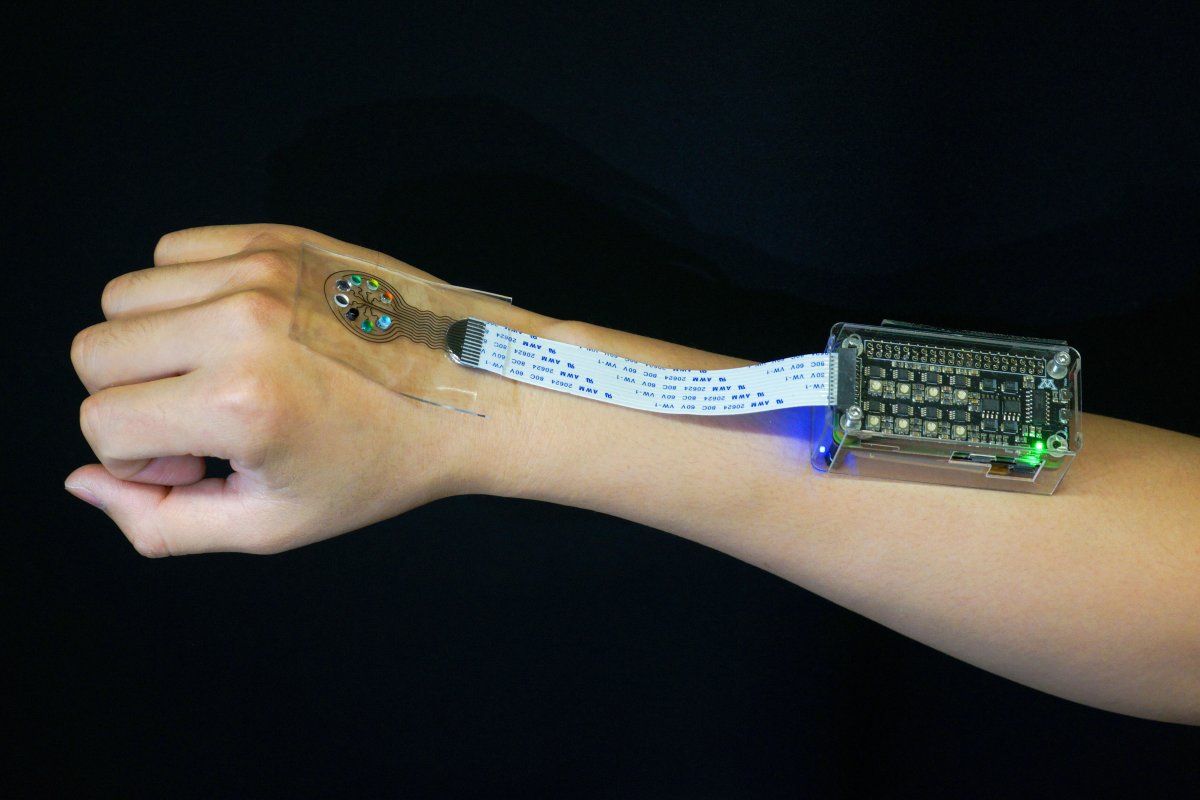McAlpine Group Designs Unique 3D-Printed Device to Help People with Lupus

ME Professor Michael McAlpine's research group, along with doctors from the University of Minnesota Medical School, designed a unique 3D-printed light-sensing medical device that gives real-time feedback to correlate light exposure with disease flare-ups. This groundbreaking work could help people with lupus and other light-sensitive diseases by providing personalized data on the relationship between light exposure and symptoms for individual users.
“This research builds upon our previous work where we developed a fully 3D printed light-emitting device, but this time instead of emitting light, it is receiving light,” said McAlpine, co-author of the study. “The light is converted to electrical signals to measure it, which in the future can then be correlated with the patient’s symptoms flare ups.” McAlpine said the 3D printing process is relatively low-cost and easy to fabricate.
The research team — led by McAlpine and Dr. David Pearson — has received approval to begin testing the device on human subjects and will soon begin enrolling participants in the study. In addition to Pearson and McAlpine, the team included ME researchers Xia Ouyang, Ruitao Su, Daniel Wai Hou Ng, and Guebum Han.
Get the full story in this CSE news release.
Watch the 3D printing process in action: